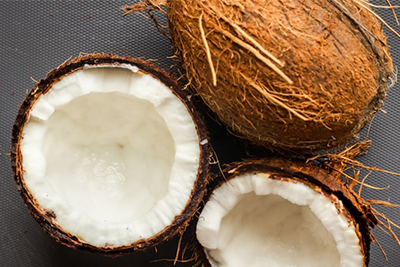Choosing Coir Matting: A Guide for Businesses and Homeowners
Choosing Coir Matting: A Guide for Businesses and Homeowners
Blog Article

When picking the right flooring solution for entrances and areas of frequent use, considering both functionality and aesthetics is essential. Coir matting, made from the coarse hairs of coconut husks, is a superb option that combines durability, eco-friendliness, and a warm, inviting appearance. This blog explores why coir matting is an excellent choice for commercial and residential settings, focusing on its benefits, maintenance tips, and how to select the right type for your requirements.
What is Coir Matting?
Coir matting is manufactured using the sturdy, dense fibres found between the hard inner shell and the outer coat of a coconut. Known for their strength and moisture-resistant properties, coir mats are favoured for use in both internal and external environments. These mats are available in various thicknesses and designs, allowing for personalisation to perfectly suit any entryway or area needing durable flooring.
Benefits of Coir Matting
- Natural Durability
- Eco-Friendliness
- Versatile Designs
- Efficient Dirt Trapping
Thanks to its coarse texture and high resistance to water and dirt, coir is inherently robust. This makes it an ideal choice for areas with significant foot traffic, such as commercial entrances and active household corridors.
Being a natural product, coir is biodegradable and sustainable. It stands as a prime option for those who value environmental consciousness, choosing renewable resources over synthetic alternatives.
With a range of shapes, sizes, and patterns, including custom options that can be customised to fit specific areas, coir mats offer extensive flexibility in design. This ensures click here there is a mat to complement the aesthetics of any entrance or space.
The coarse fibres of coir are excellent for scraping off dirt, debris, and moisture from shoes, aiding in indoor areas clean and dry. This proves particularly valuable during wet seasons or in muddy environments.
Choosing the Right Coir Matting
For Businesses:
- Traffic Volume: Evaluate the amount of foot traffic your premises encounter. Heavier traffic areas may require more durable coir matting.
- Branding: Customised mats can be produced with your business logo or welcome message, boosting your professional appearance while also promoting your brand.
For Homeowners:
- Aesthetic Considerations: Opt for a colour and texture that blends with your home decor. Coir mats are available in both natural hues and dyed varieties.
- Placement: Identify whether the mat will be used indoors or outdoors, which check here will affect the type of mat you select.
Maintaining Your Coir Matting
To ensure your coir matting stays functional and attractive, regular maintenance is vital. Here are some practical tips:
- Shake and Beat Regularly: Frequently shake out or beat the coir mat to remove trapped dirt and debris.
- Vacuum Often: Use a vacuum cleaner to remove finer particles, especially important for indoor mats.
- Avoid Prolonged Moisture: While coir is moisture-resistant, it can suffer from mould and mildew if left wet extensively. Ensure the mat dries completely if it becomes soaked.
- Spot Clean Stains: Immediately tackle spills and stains with a mild cleaning solution to avoid permanent discolouration.
Conclusion
Coir matting combines durability, practicality, and aesthetic appeal, making it a fantastic option for both commercial and residential settings. Whether you are a business looking to enhance your workspace or a homeowner aiming to keep your residence tidy and stylish, coir matting provides a practical, natural solution. Remember to consider your specific needs in terms of traffic, location, and design to pick the perfect coir mat for your space. With the right care, your coir matting will serve effectively for years to come. Report this page